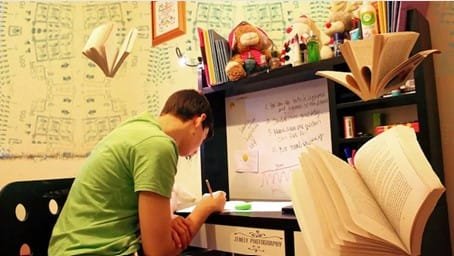The reasoning section in IBPS exams is more than just a test of logic. It’s a high-scoring opportunity for well-prepared candidates. Puzzles dominate this segment among all types of questions. They assess how efficiently a candidate can handle data, patterns, and constraints. To succeed, one must not only understand the basics but also develop accuracy under pressure.
Solving puzzle questions in reasoning enhances logical thinking and builds the ability to interpret complex data efficiently. Puzzle questions often appear as floor arrangements, seating plans, box-based setups, or schedule-based problems. Each type requires a different visualization method and a calm approach. Let’s explore how to ace this section.
Build Speed Through Pattern Recognition
Every puzzle type has a predictable structure. The layout, language, and constraints often repeat across exams. Regular exposure helps the brain recognize these patterns faster. What once seemed complex becomes familiar with time.
By analyzing different formats, aspirants can develop shortcut methods. Key strategies include drawing diagrams, making tables, and organizing data clearly. These strategies save precious seconds during the exam. With faster visualization comes better accuracy. This efficiency is a result of repeated exposure, not just intelligence.
Sharpen Accuracy by Practicing Mistake Analysis
Getting puzzles wrong is part of the learning process. However, reviewing mistakes is where actual improvement lies. After every practice session, revisiting errors helps identify weak areas. Maintaining an error log builds awareness.
Patterns emerge over time, showing consistent trouble spots. Once identified, those can be targeted in future sessions. This process sharpens problem-solving instincts. Avoiding past mistakes gradually boosts confidence. The focus should always be on learning, not just on solving more.
Use Mock Tests to Simulate Exam Pressure
Solving puzzles at home is different from performing under pressure. That’s why mock tests are crucial. They simulate the stress, time crunch, and unpredictability of the real exam. Aspirants should practice puzzles in timed environments.
After an hour of testing, the mind begins to tire—yet puzzles still demand precision. Training under these conditions makes a noticeable difference. Review mock tests carefully, especially the reasoning section. Reworking unsolved or wrong puzzles strengthens memory. Over time, the performance graph begins to rise.
Choose Quality Over Quantity in Practice
Practicing puzzles daily is essential, but quality matters more than quantity. A single well-framed puzzle teaches more than five average ones. Stick to sources that follow actual exam patterns. Focused practice yields better results than scattered efforts.
It’s better to solve fewer puzzles deeply than rush through many with half-focus. Understand the logic behind every clue. Ask why a specific approach worked. That mindset leads to mastery. Structured practice with proper guidance leads to consistent improvement. It’s the only way to turn puzzles from fear into strength.
Develop a Strategic Approach to Puzzle Solving
Jumping straight into a puzzle without a clear plan often leads to confusion. A strategic approach helps maintain clarity throughout the solving process. Begin by reading the entire question carefully, without rushing. Highlight keywords such as “immediately,” “to the left,” or “not between.” These small cues guide how the structure should be framed.
Next, draw a rough diagram or table based on the given information. Visual representation reduces mental load and avoids confusion later. Always fill in the direct clues first—those that clearly place a person or object. Then, move to indirect hints, connecting them logically to the information already placed.
Puzzle questions in reasoning are not just a part of the syllabus—they’re the deciding factor in performance. They measure how candidates think under pressure and how fast they can adapt to data. Developing these skills takes time, effort, and thoughtful preparation. Aspirants who approach puzzles strategically tend to perform better overall. With the right approach, puzzles can go from intimidating to empowering.



